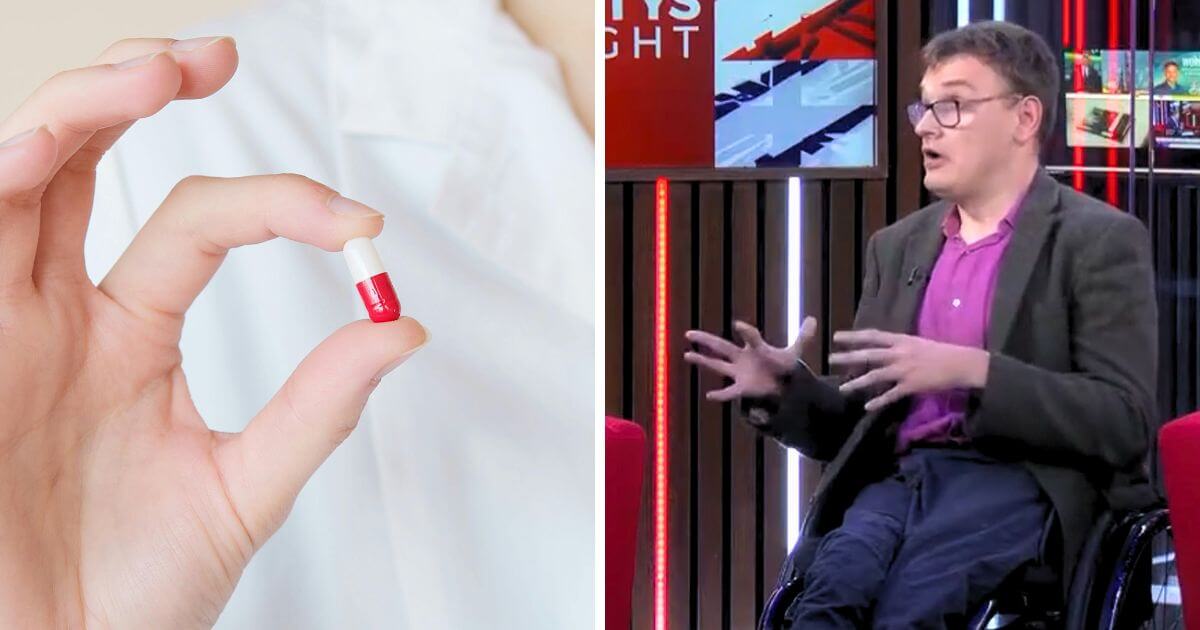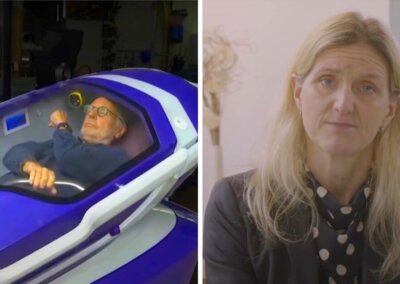A leading disability rights activist believes improving the NHS should be prioritised over Kim Leadbeater’s assisted suicide Bill.
George Fielding a wheelchair user and disability rights activist with cerebral palsy has called for greater resources to be allocated to the NHS rather than focusing on introducing assisted suicide. He said “I fundamentally believe that the priority of enabling everybody to live a joyful life that they love is to give them the social and emotional infrastructure in society to live independently and with dignity”.
“That means reforming services, it means a better NHS, it means reimagining our social care system and it means giving people access to the support that they need.”
“My fundamental worry that I don’t think you can safeguard against is that if you don’t give people the assistance to live and you prioritise assistance to die, that means you’re only giving quality of life to those that you choose and to those that are more productive, more visible, can speak for themselves, more vocal” he added.
“How can anyone say for definite that you’ve only got six months?”
The Terminally Ill Adults (End of Life) Bill, voted through at Second Reading on Friday 29 November, applies to adults who are thought to have less than six months to live. However, Fielding, along with a number of MPs who spoke during Second Reading, takes issue with the very idea that we can accurately determine how long someone has to live. “Who says you’ve got six months? They might estimate you’ve got six months, but many people with a terminal diagnosis live for years, so how can anyone say for definite that you’ve only got six months?”, he said.
Fielding’s worries are shared by senior professors of palliative care and oncology who raised concerns before the debate at Second Reading about the ‘impossibility’ of accurately predicting the length of time a patient will survive.
At the time, Professor Katherine Sleeman, a specialist in palliative care, told The Telegraph “It is not possible to accurately determine someone’s prognosis as a number of months, say six months or 12 months”.
“As a doctor, patients do ask me, ‘How long have I got left?’ and I would never say, ‘Six months or fewer.’ I might say, ‘Your prognosis is probably measured in months, or “long months”.’ That’s as precise as I would be”.
Baroness Finlay of Llandaff, a former professor of palliative medicine said “Predicting life expectancy is impossible… I have known people who live well and actively for years after they were thought to have no more than a few weeks to live”.
The senior medics’ concerns are confirmed by research indicating that over half of patients expected to die within six months to a year outlive those expectations.
Based on over 25,000 clinicians’ responses, the results showed that on 6,495 occasions when a doctor thought a patient would likely die at any point in the following 12 months, they were incorrect in more than 54% of cases.
Assisted suicide-the last thing the NHS needs
Fielding’s concerns come as palliative care services are in crisis, with Marie Curie reporting that 100,000 people are dying each year needing palliative care but not receiving it, and a wider healthcare system also in a state of crisis, with Labour’s own Health Secretary describing the NHS as “broken”.
A large group of medical professionals have written an open letter to the Prime Minister expressing their concerns about the introduction of assisted suicide in the context of a struggling NHS, which, they argue, could put pressure on vulnerable people to end their lives.
In the open letter, 2,038 doctors, 905 nurses, and 462 other healthcare workers warn that the “NHS is broken, with health and social care in disarray. Palliative care is woefully underfunded and many lack access to specialist provision”.
Spokesperson for Right To Life UK, Catherine Robinson, said “George Fielding is right to highlight the need for investing greater resources in the NHS and social care system, which is in crisis and “broken”, according to the Health Secretary”.
“The last thing the NHS needs right now is Leadbeater’s reckless assisted suicide Bill, which will put yet more pressure on healthcare workers who are already carrying a huge workload, and sends the message that some lives are not worth living”.












